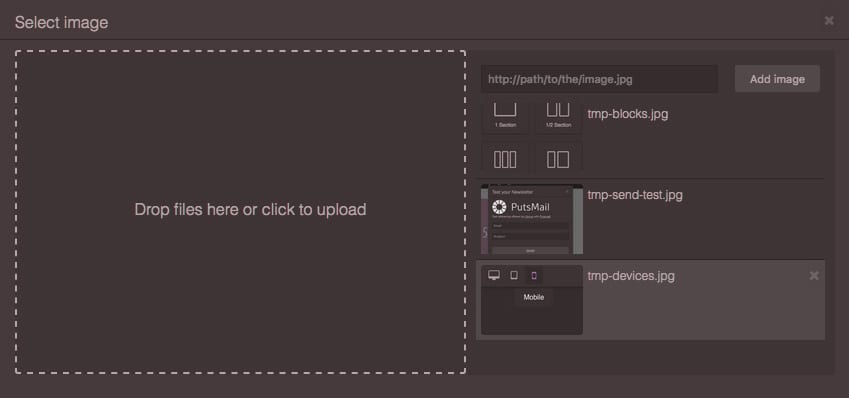GrapesJS is a free and open source Web Builder Framework which helps building HTML templates, faster and easily, to be delivered in sites, newsletters or mobile apps. Mainly, GrapesJS was designed to be used inside a CMS to speed up the creation of dynamic templates. To better understand this concept check the image below
Generally any 'template system', that you'd find in various applications like CMS, is composed by the structure (HTML), style (CSS) and variables, which are then replaced with other templates and contents on server-side and rendered on client.
This demos show examples of what is possible to achieve: Webpage Demo - http://grapesjs.com/demo.html Newsletter Demo - http://grapesjs.com/demo-newsletter-editor.html
- Features
- Download
- Usage
- Development
- Documentation
- API
- Testing
- Plugins
- Support
- Changelog
- Contributing
- License
- Blocks
- Style Manager, for component styling
- Layer Manager, that comes handy with nested elements
- Code Viewer
- Asset Manager, for uploading and managing images
-
Local and remote storage
-
Default built-in commands (basically for creating and managing different components)
- CDNs
- UNPKG
https://unpkg.com/grapesjshttps://unpkg.com/grapesjs/dist/css/grapes.min.css
- CDNJS
https://cdnjs.cloudflare.com/ajax/libs/grapesjs/0.12.17/grapes.min.jshttps://cdnjs.cloudflare.com/ajax/libs/grapesjs/0.12.17/css/grapes.min.css
- UNPKG
- NPM
npm i grapesjs
- GIT
git clone https://github.com/artf/grapesjs.git
For the development purpose you should follow instructions below.
<link rel="stylesheet" href="path/to/grapes.min.css">
<script src="path/to/grapes.min.js"></script>
<div id="gjs"></div>
<script type="text/javascript">
var editor = grapesjs.init({
container : '#gjs',
components: '<div class="txt-red">Hello world!</div>',
style: '.txt-red{color: red}',
});
</script>You could also grab the content directly from the element with fromElement property
<div id="gjs">
<div class="txt-red">Hello world!</div>
<style>.txt-red{color: red}</style>
</div>
<script type="text/javascript">
var editor = grapesjs.init({
container : '#gjs',
fromElement: true,
});
</script>For more practical example I suggest to look up the code inside this demo: http://grapesjs.com/demo.html
GrapesJS uses Webpack as a module bundler and Babel as a compiler.
Clone the repository and install all the necessary dependencies
$ git clone https://github.com/artf/grapesjs.git
$ cd grapesjs
$ npm iStart the dev server
$ npm startOnce the development server is started you should be able to reach the demo page (eg. http://localhost:8080)
Check the getting started guide here: wiki
API References could be found here: API-Reference
$ npm test- grapesjs-plugin-export - Export GrapesJS templates in a zip archive
- grapesjs-plugin-filestack - Add Filestack uploader in Asset Manager
- grapesjs-plugin-ckeditor - Replaces the built-in RTE with CKEditor
- grapesjs-aviary - Add the Aviary Image Editor
- grapesjs-blocks-basic - Basic set of blocks
- grapesjs-plugin-forms - Set of form components and blocks
- grapesjs-navbar - Simple navbar component
- grapesjs-component-countdown - Simple countdown component
- grapesjs-style-gradient - Add a gradient type input
- grapesjs-blocks-flexbox - Add the flexbox block
- grapesjs-lory-slider - Slider component by using lory
- grapesjs-tabs - Simple tabs component
- grapesjs-preset-webpage - Webpage Builder
- grapesjs-preset-newsletter - Newsletter Builder
- grapesjs-mjml - Newsletter Builder with MJML components
Find out more about plugins here: Creating plugins
If you like the project support it with a donation of your choice or become a backer/sponsor via Open Collective
BSD 3-clause










